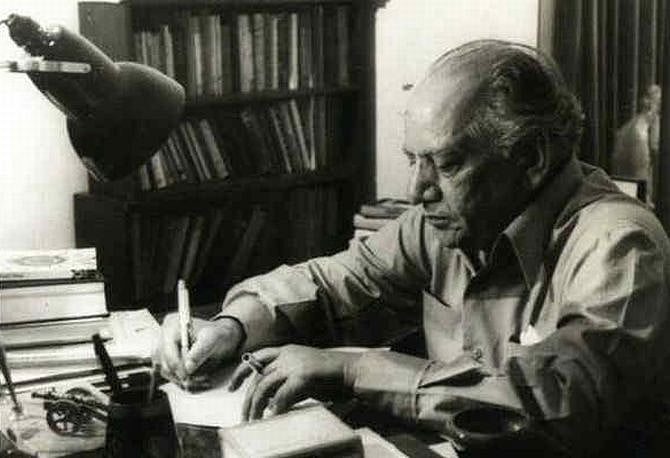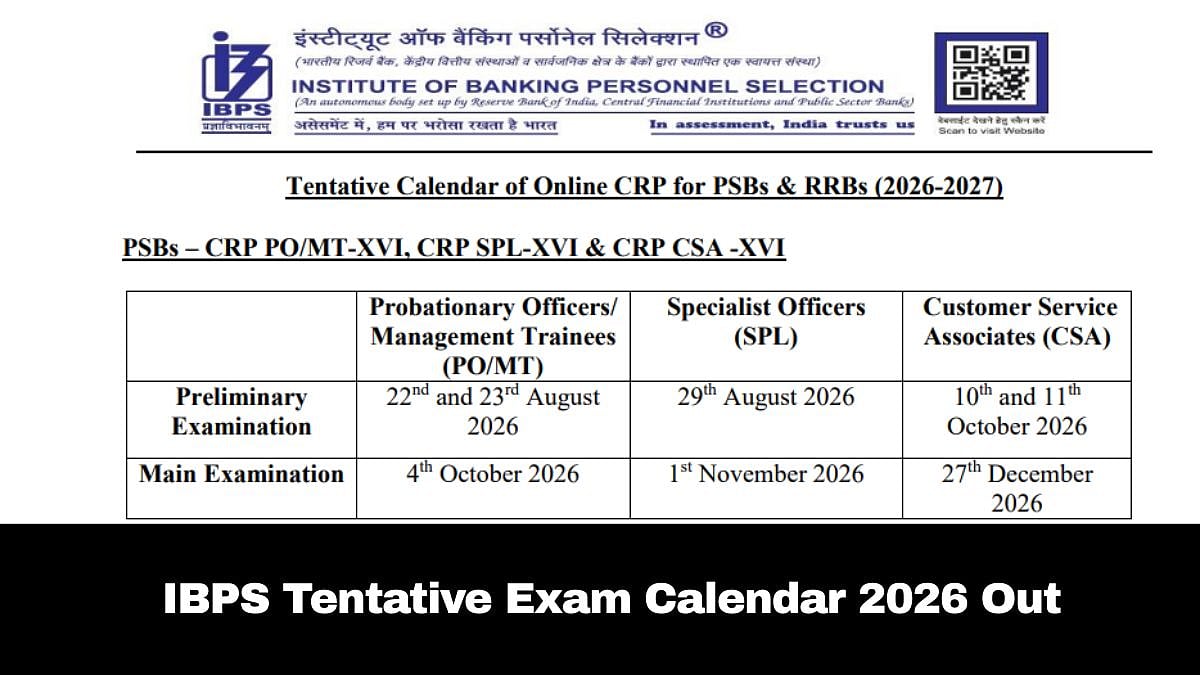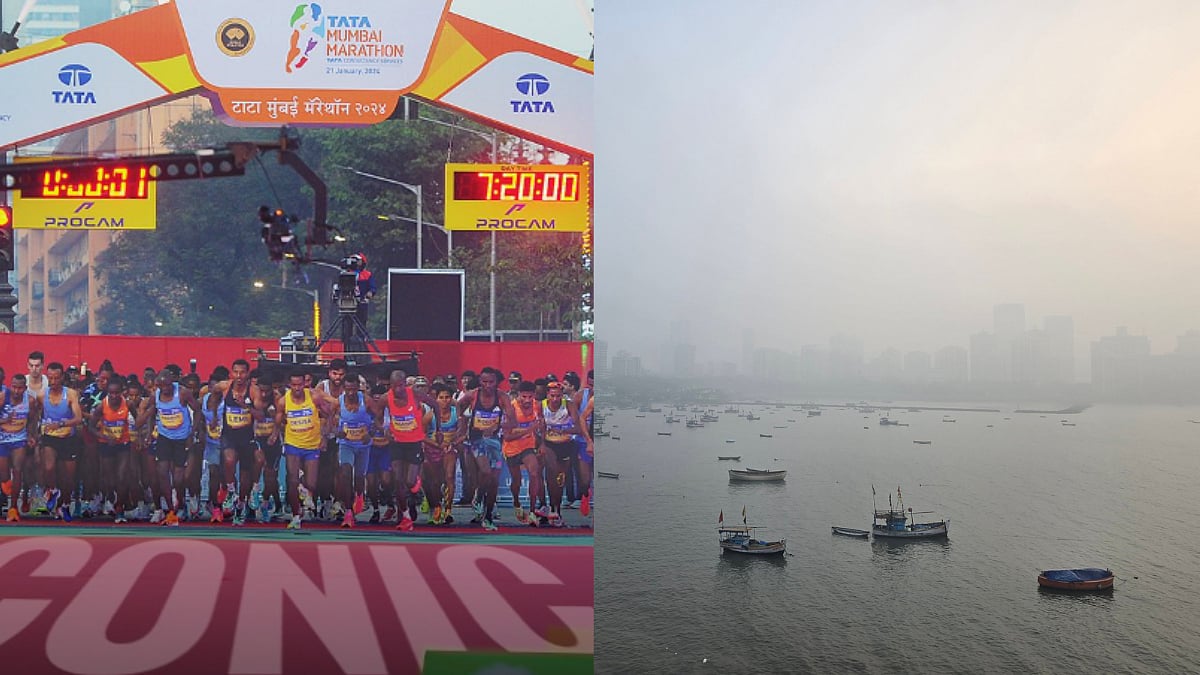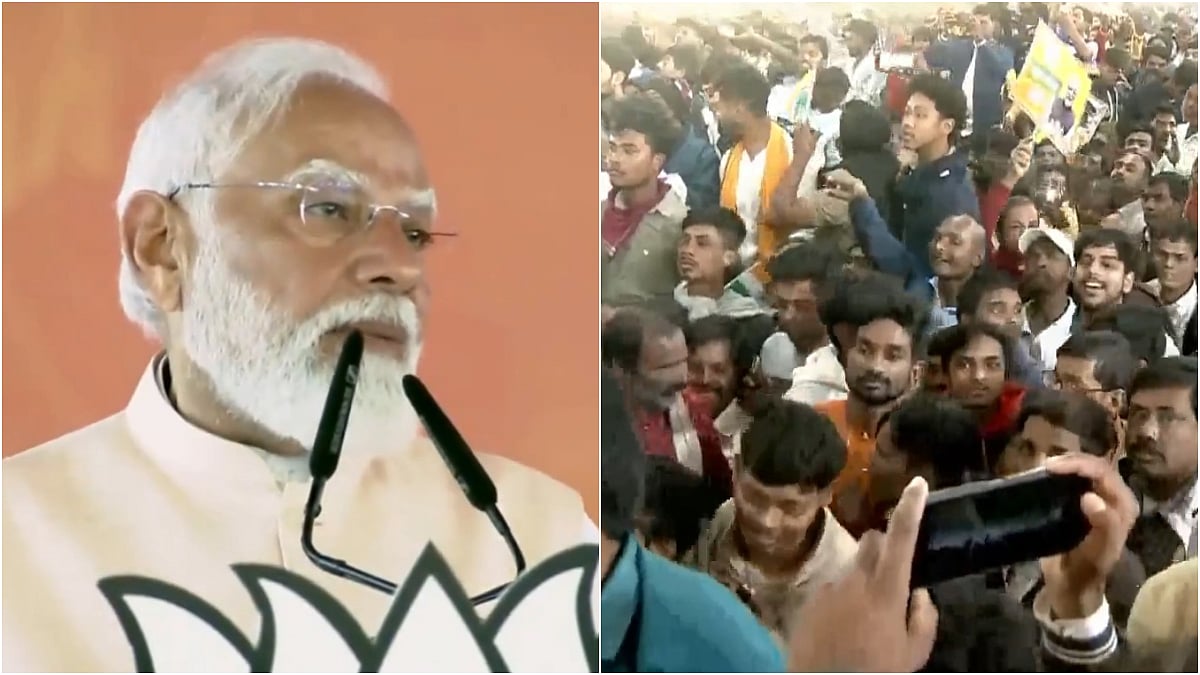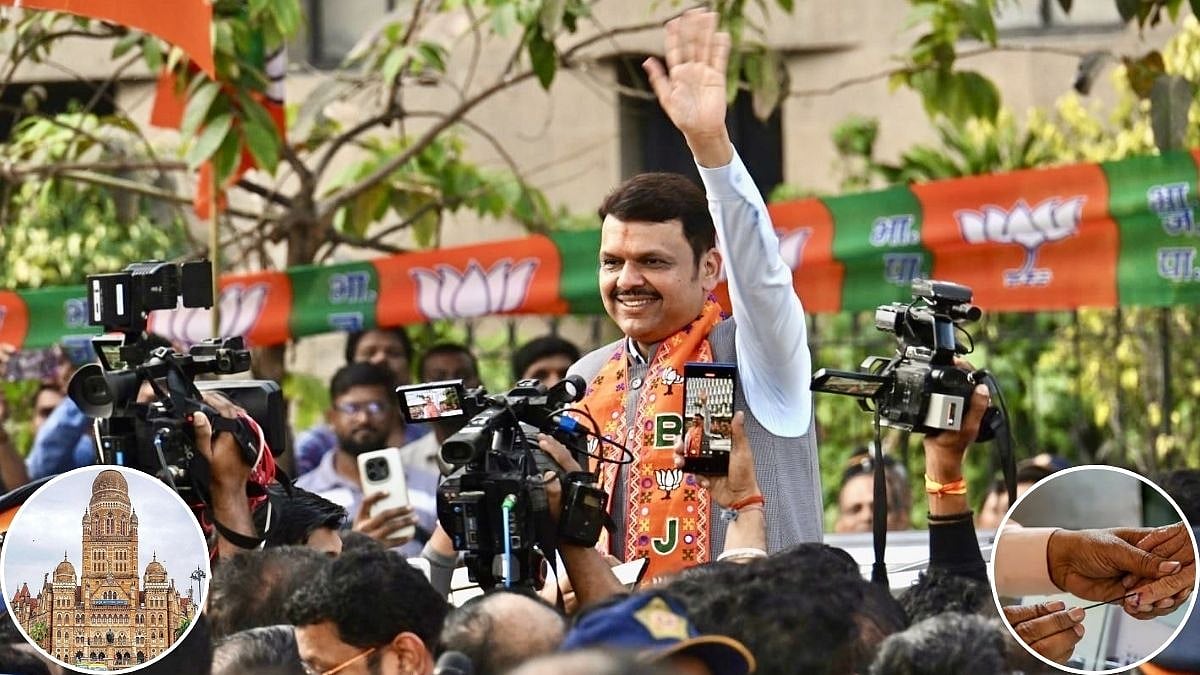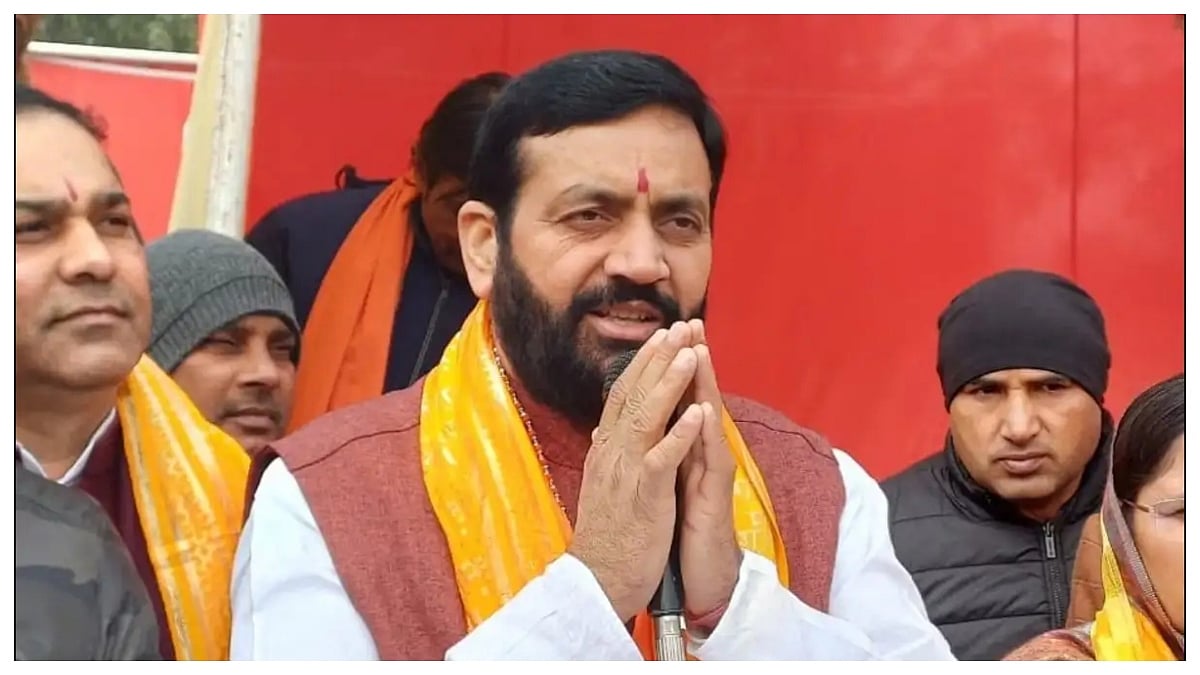…woh din jiska vaada hai
jo lauh-e-azal mein likhaa hai
jab zulm-o-sitam ke koh-e-giran
rui ki tarah ud jaayenge…
hum dekhenge…
(We will see if the promises of good days will be fulfilled, and we will see stress free days)
These lines were suddenly the talk of the town when Pallavi Joshi sang them along with her students as a lecturer of JNU in the film The Kashmir Files. This poem, written in 1979, was first used publicly by singer Iqbal Bano in 1985 when she wore a black saree and participated in a protest against the fatwa by General Zia-ul-Haq that women shouldn’t wear sarees. She sang these lines in her booming, yet melodious, voice to reiterate the distress. Faiz had written this poem to voice his dissent when Zia-ul-Haq toppled the regime and promised many things which were against the basic principles of humanity and democracy.
In 2019 December these lines were voiced by a few protestors in IIT Kanpur, which led to a FIR against Faiz (already dead) and claimed that he was an anti-Hindu poet. What most, who voiced this thought, missed was the fact that Faiz was amongst the few Muslims who were against the Partition of India. For the poem hum dekhenge itself ends with: Uthegaa anal haq ka naara… meaning the Shouts of I am Truth will resonate.
The Kashmir Files might have given the 70s poem a new life… however, one has to admit that poetry of Faiz Ahmed Faiz that was written in 40s, 50s, 60s and 70s is still germane. Even today, we need to reiterate bol ke lab azad hain tere… to remind us of the need for freedom of speech in current circumstances.
Born in 1911, Faiz Ahmed Faiz, despite being a self-proclaimed Communist, was also an active member of Progressive Writers Group in the 1940s. He was pained when they announced the partition of India. He penned Subah-e-Aazadi to express his ache on the day of partition.
Ye daag daag ujaala ye shab-gazida sahar
Vo intezar tha jiska ye vo Sahar to nahin…
…abhi charaag-e-sar-e-raah ko kucch khabar hi nahin
abhi giran-e-shab mein kami nahin aayi
najat-e-dida-o-dil ki ghadi nahin aayi
chalo chalo ki wo manzil abhi nahin aayi
(This dark morning with tainted light is not the morning that we were waiting for… road lights are not yet aware of the change, the salvation has not yet been achieved, we have not yet reached the goal)
Quite a few, who are searching for a meaningful light of leadership and quality of life, might find these lines apropos today as well.
As the Editor-in-Chief of the first newspaper of independent Pakistan, The Pakistan Times, Faiz always wrote candid editorials that criticised the government and system. His poetry, which flourished during his college days, took a back seat during this time.
Faiz was arrested in 1952 under the Rawalpindi Conspiracy Case, though his only participation remained to be as a facilitator of the meeting of two acquaintances. He went back to writing poetry during his imprisonment.
The poetry he wrote in prison was quite intriguing. It was a mesmeric mix of rebellious and romantic poetry. While some oozed romance and spoke about estranged love like the nazm Dard aayega dabe paao… where he said:
Halq-e-zulph kahin, Gosh-e-rukhsaar kahin
Hijr ka dasht kahin, Gulshane-didaar kahin
Lutph ki baat kahin, pyaar ka ikraar kahin
(Ringlets of your hair, glimpse of your cheeks, estrangement from your sight… gratification of love’s acceptance… it’s all there…)
Or the ghazal:
Kab yaad mein tera saath nahin, kab haath mein tera haath nahin
(When did I not remember you or hold your hand…)
Some were purely anti-establishment like
Kuch mohatsibon ki khalwat mein, kuch waijon ke ghar jaati hai
Hum baadkashon ke hisse ki ab jam mein kamtar jaati hai
(Some went to the rulers, some to preachers… we, the boozers never got any… here boozers is used to represent the rebels)
Then some were coded to avoid any action from the establishment; and of course, to ensure that they are published. One such popular ghazal which all renowned singers sang was –
Gul mein rang bhare bade – naubahar chale
Chale bhi aao ki Gulshan ka karobaar chale
Where he refers to his country as Gulshan. This was a part of his collection Zindaa Nama
Two collections of Faiz’s poems were published when he was in jail – Zindaa Nama and Dast-i-saba. By the time he was released from the prison, he was a famous poet. So famous that his dedication of one of the books to his wife Alys, using her Urdu name Kulsoom created quite a riot and fired gossip.
If we follow the path travelled by Faiz as a poet, it is obvious that the romantic poet and the anti-establishment poet coexisted within him most of the time. That resulted in his writing both genres with equal aplomb.
What’s important is that while these two personalities cohabited most often, there was an evident strife quite often… which is evident in one of his famous ghazals - Mujhse pehli si mohbaat mere mehboob na maang…
He goes on to say:
Tu jo mil jaaye to taqdeer nigun ho jaaye
Yoon na tha main ne faqt chaahaa tha, yoon ho jaaye
Aur bhi gham hai zamaane mein mohabbat ke siva
Rahaten aur bhi hain vasl ki Rahat ke siva
(Fate will turn upside down if we unite… I never wished for anything like that… there’s more to life than the sorrows of love)
It is believed that this ghazal from Naqsh-e-Fariyadi marks his transition from a traditional Urdu poet to a poet who gave voice to the rebel romantic along with giving voice to the common man’s agony.
Faiz lived a life of self-imposed exile in Beirut for many years after 1979, after he was reprimanded for his Hum dekhenge… poem. He returned to Lahore a few months before his death. His last nazm as per records remains:
Bahut mil na mila Zindagi se gham kya hai
Mataye-dard baham hai to besho-kam kya hai
Hum ek umra se waqif hain ab na samjhao
Ke lutf kya hai mere mehrbaan sitam kya hai…
This ends with:
Sajao bazm ghazal gaao jam tazaa karo
Bahut sahi ghame-geti, sharaab kam kya hai
(I have received in abundance from life and I have no complaints… let’s celebrate with ghazal, liquor…as there are no regrets)
It kind of sums up the mental state he was in the last few years of his life – no regrets.
Shruti Pandit is Consulting Editor, Features, The Free Press Journal
